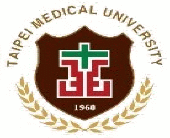|
Tropical medicine research
2 Credits
(Elective)
(Class in English)
|
Core Course-Postgraduate Program in College of Medicine
|
World Health Organization currently takes its effort to control
HIV, TB and malaria as well as NTDs in developing countries that
those issues are regarded by WHO as important international
agenda. Among 18 NTDs, 5 NTDs belong to bacterial and viral
diseases and 13 NTDs belong to parasitic diseases. HIV, TB,
Malaria, and NTDs are epidemic in tropical areas, to WHO''s
estimation, 2 billion people suffer from NTDs. Those most
affected are the poorest populations often living in remote,
rural areas, urban slums or in conflict zones. With little
political voice, neglected tropical diseases have a low profile
and status in public health priorities. However, NTDs are easily
diagnosed, treatable, preventive, and cost cheap in medication
and most importantly it can reduce the international burdens to
increase the life quality. Therefore, this course will introduce
pathogenesis and vaccine development for those tropical diseases
endemic in developing countries and discipline students to have
knowledge related to tropical medicine and research skills.
|
|
Spatial epidemiology & applications of Geographic
Information Systems
2 Credits
(Elective)
(Class in English)
|
Core Course-PhD Program in College of Public Health
|
Spatial epidemiology is the analysis of geographic variations in
disease with respect to demographic, environmental, behavioral,
socioeconomic, genetic, and other risk factors. Geographic
information systems (GIS) is a powerful technique to process,
manage, and display spatial data. Students will learn basic
concepts of spatial epidemiology and analysis through a series
of lectures and readings from the literature. The fundamental
mapping techniques and disease modeling logics will be included.
The course will also discuss contemporary studies which apply
GIS techniques in the biomedical arena. This class is aimed at
students who are interested in using geospatial data and
techniques for health-related researches. QGIS (free software)
will be introduced in the class which is a powerful tool to
process spatial data and generate maps. No computer skill or GIS
knowledge is required.
|





